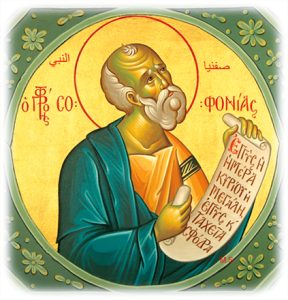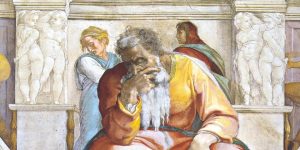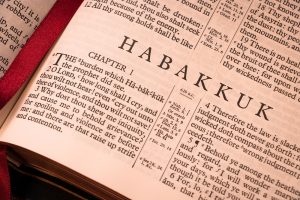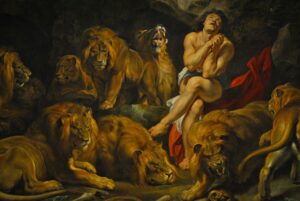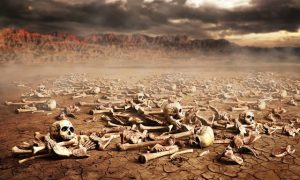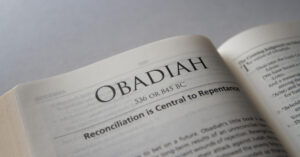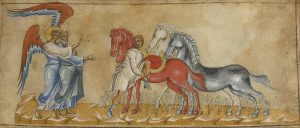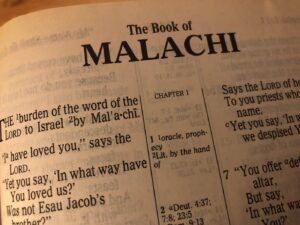Zephaniah prophesied during the reforms of King Josiah (640–609 BC.). What is unusual about this period of history, is that the king is known as someone who “did what was right in the eyes of the Lord and followed completely the ways of his father David, not turning aside to the right or to the left.” (2 Kings 22:2). Through his reforms, the king tried to restore the nation of Judah by returning the people to their covenant relationship with God. This was desperately needed after the reign of King Manasseh. King Manasseh was one of the most corrupt kings of Judah’s history, reversing all the gains his father had made. He is thought to be the king responsible for putting Isaiah to death. Manasseh’s son Amon was also dead after a reign of only 2 years. He was assassinated by his servants.
Judah, the southern kingdom, experienced a brief return to faithful practices, but it did not last. They quickly fell away from the Lord once again after King Josiah died. To help date this time, the northern kingdom, “Israel,” is mentioned in Zephaniah 2:9; 3:13-15, The northern kingdom had already been taken into exile by Assyria in 722 BC. In these verses, Israel refers to Judah and its capital, Jerusalem. The capital cities had not yet fallen. Other prophets such as Jeremiah, Nahum, and Habakkuk prophesied at the same time. Their messages were similar. They all described the need for spiritual transformation.
Zephaniah has an interesting family history. He traced his lineage back to a man named Hezekiah. We’re not sure whether or not this is the same person as King Hezekiah, who initiated reform, transcribed much of the Proverbs, and was remembered long afterward for following God (2 Kings 19:5). The name Zephaniah means “the Lord hides” or “the Lord has hidden.” It was rather common for parents to give their children a name that somehow became a prophetic description of their life. Some Bible scholars believe perhaps that God hid Zephaniah during the bloodthirsty reign of Manasseh. Zephaniah’s message was coming at a time when the nation was obeying God’s laws and turning from idols (2 Chronicles 34:33). Since the land was obeying God, it is reasonable to ask who exactly was Zephaniah’s warning. After King Josiah dies in battle, his sons take the throne for 22 years. They disobey God, cause trouble with Babylon, and disregard the prophet Jeremiah’s warnings (Jeremiah 36:27–29; 37:1–2). Additionally, the priests and citizens of Judah defile God’s temple (2 Chronicles 36:14).
Once again, the necessity for Zephaniah’s prophecies is caused by the historical pattern of failure to pass God’s Truth to a younger generation. One might question their family structures and educational systems during those times. Despite the stirring revival that occurred under King Josiah, the darkness of pagan practices surrounded them in their tiny nation. Living in a corrupt world is always hard. This has a particularly bad effect on the upcoming generations that know much less about their God than their parents knew. When there is no reinforcement of God’s Truth from either family or educational systems, the surrounding pagan practices can be quickly absorbed by the younger generations.
Like the Book of Joel, Zephaniah takes a “bad news first” approach. He began with the coming destruction of Jerusalem, next the downfall and restoration of the outside nations, and finally ended with the promise that Judah and Israel will one day be restored.
A Brief Outline for the Book of Zephaniah
- (Zephaniah 1) – Desolation and discipline on Judah
- (Zephaniah 2) – Desolation in the surrounding nations
- (Zephaniah 3:1-11) – The Lord’s remnant from the nations
- (Zephaniah 3:25-20) – The Lord’s remnant from Israel
The first thing the prophet Zephaniah wants his readers to know is that these aren’t his prophecies but God’s. It was a heavy message God had placed on Zephaniah’s heart!
(Zephaniah 1:1) – “The word of the Lord that came to Zephaniah son of Cushi, the son of Gedaliah, the son of Amariah, the son of Hezekiah, during the reign of Josiah son of Amon king of Judah:”
All of chapter Zephaniah 1 becomes his indictment of the people of Judah. It is a frightening description of what God’s judgment will look like for the citizens of the southern kingdom. He does lay out a roadmap to avoid judgment. It is good advice, even for today. Zephaniah also lays out what judgment will look like for the neighboring countries. These are the pagan countries influencing the southern kingdom of Judah.
(Zephaniah 2:3b) – “Seek the Lord, all you humble of the land, you who do what he commands. Seek righteousness, seek humility; perhaps you will be sheltered on the day of the Lord’s anger.”
There is a concept that is consistent through the cycles of judgment, punishment, and restoration. It is the story of Israel’s remnant people. Those are the people who followed God’s Truth and obeyed God’s commands. Our God uses them as “seed stock” to rebuild His kingdom of believers.
(Zephaniah 3:9-13) – “Then I will purify the lips of the peoples, that all of them may call on the name of the Lord and serve him shoulder to shoulder. From beyond the rivers of Cush my worshipers, my scattered people will bring me offerings. On that day you, Jerusalem, will not be put to shame for all the wrongs you have done to me, because I will remove from you your arrogant boasters. Never again will you be haughty on my holy hill. But I will leave within you the meek and humble. The remnant of Israel will trust in the name of the Lord. They will do no wrong; they will tell no lies. A deceitful tongue will not be found in their mouths. They will eat and lie down, and no one will make them afraid.”
Despite the judgment that would come to the people of Israel, the righteous ones would be hidden and guarded against the destruction to come. For many of us today, it is hard for us to understand the constant drumbeat of judgment in the books of prophecy. The occult or pagan practices were disgusting and cruel. It was a time of constant crimes against humanity, murder, and idol worship. Imagine the worst, it was going on at that time. God has no patience with Satanism. The point that we must never forget is that God never brings destruction to a place or a people that haven’t already destroyed themselves.
(Zephaniah 3:14,15,20) – “Sing, Daughter Zion; shout aloud, Israel! Be glad and rejoice with all your heart, Daughter Jerusalem!”
“The Lord has taken away your punishment, he has turned back your enemy. The Lord, the King of Israel, is with you; never again will you fear any harm.”
“’At that time I will gather you; at that time I will bring you home. I will give you honor and praise among all the peoples of the earth when I restore your fortunes before your very eyes,’ says the Lord.”
There will be a restoration of a remnant (Zephaniah 3:13) that are faithful to God. God’s judgments for sin will be taken away (Zephaniah 3:14). This prophecy is the foretelling of our Messiah’s return. We are to be forgiven in Christ and we have been given the hope of heaven instead of the prospect of eternal judgment (1 John 4:17,18). Do you remember what Zephaniah is suggesting our plan today should be?
(Zephaniah 2:3b) – “Seek the Lord, all you humble of the land, you who do what he commands. Seek righteousness, seek humility; perhaps you will be sheltered on the day of the Lord’s anger.”
Contemplations
- Ever since Noah and his family’s adventure on the ark, God has kept a remnant hidden during times of harsh judgment. How does this make you feel?
- Ideas to Explore: Seems like God’s objective is to leave the world in a good place. Is it reassuring? Do you feel like you are part of whom God will hide?
- Do you think the history of destruction that followed judgment is a deterrent today?
- Ideas to Explore: We know that God has always punished bad behavior. What makes people think they can get away without punishment?
- Why is it so hard to pass God on from generation to generation?
- Ideas to Explore: We are separating God from education. The family structure and responsibilities of parenting are collapsing.
- Why is the role of Godly parenting so important for the future of the world?
- Ideas to Explore: List your perfect world: peace, prosperity, caring for each other, no crime, no need for drugs, adequate food, clothing, and housing for all. Add to this list. Now compare God’s promises to the world’s promises. Who do you want to believe?
